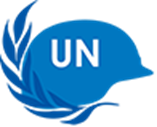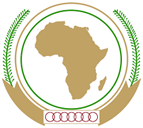Armed Groups in the Sahel
Status
running
Topics
- Agents and Patterns of Security and War
Regional approaches to dealing with armed groups in the Sahel
In the Greater Sahel border regions are frequently hot spots in long running conflicts which are used by non-state armed groups for their benefit, but they are also spaces where people and communities socially, culturally, and economically connect and build important interrelations on different scales. We believe that these border complexes have unique historic and socio-economic features which need to be considered more strongly when developing approaches to dealing with armed groups that are operating in these spaces.
All too often programmes assisting the reintegration of ex-combatants take on a national perspective. To bring regional dimensions to the attention of practitioners and policy makers we conduct research on regional conflict systems as they emerge in the Lake Chad Basin and the border triangle Niger-Chad-Libya-Sudan. Looking at these regional complexes through a system lens, allows us to better understand the complex dynamics and interdependencies involved including the intricate interconnections between armed actors, conflict economies, governance systems and socio-economic predispositions.
Our field research is guided by a mixed methods approach which involves conducting interviews, peer group discussions and quantitative surveys at the community level. A special focus is placed on cooperations with local researchers in Niger, Chad, Nigeria, and Cameroon who are closely involved in the research design and implementation. To deepen collaboration and exchange between the project partners (AU, UN, BICC) and the Sahelian research partners, the project also entails a research programme (mid-term residencies of Sahelian researchers at BICC in Germany and short-term residencies at the UN in New York and the AU in Addis Ababa). The research residencies aim at facilitating the exchange among project partners and local researchers, offering insights into the different institutional settings and perspectives as well as networking opportunities with other researchers at BICC and beyond in Germany.
From our research we aim to distil policy recommendations which can be utilized by the UN, AU and other regional, national and local actors to improve regional cooperation and programming, and support sustainable peace processes. The project’s research findings will be published through various publication formats addressed to different target audiences including a peer-reviewed research paper, a comparative study among the two focus areas, and various policy papers. Furthermore, we will hold events, evidence-informed discussions, and knowledge sharing formats, jointly organized with our partners.
Project Leader
Partner
Duration of project
2022 - 2024




